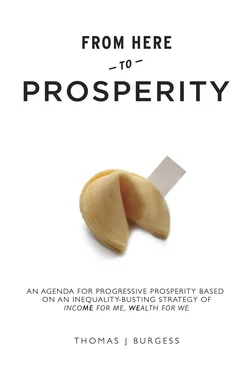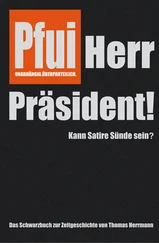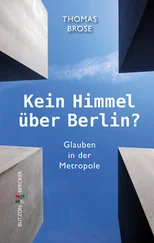Is this because the rich work harder or perhaps because they work just as hard as everyone else but are lucky enough to get paid more for what they do? The answer is neither. In the USA, the top 1% own more than 40% of the nation’s approximately $54 trillion wealth; they earn about 19% of the country’s income. The difference between what they earn and what they own is explained not by the sweat of their brows but by their accumulation of wealth of stocks, bonds, real estate and so on that continue to increase in value.
With 1% owning so much, it leaves the bottom 80% with just 7% of the wealth, or, to look at it another way, the wealthiest 400 Americans have the same combined wealth as more than 150 million people: the poorest half of the nation’s population. About three million people, the 1%, have nearly half the pie while 315 million scrambles for the other half.
Inequality among working-age people has risen faster in Britain than in any other rich nation since the mid-1970s, according to a report by the OECD in 2011. In 2014, according to the Office for National Statistics (ONS), Britain’s top 20% of earners saw their annual disposable income rise by £940, while the bottom fifth lost £381 and all other groups lost around £250. By contrast, the share of the top 1% of income earners increased from 7.1% in 1970 to 14.3% in 2005. Astonishingly, the country’s five richest families now own more wealth, £28.1 billion, than the poorest 20% of the population who have just £2,230 each on average. Just prior to the global recession, the OECD said the very wealthiest Brits – the 0.1% of highest earners – accounted for a remarkable 5% of total pre-tax income, a level of hoarding not seen since the Second World War.
‘There are two ideas of government,’ according to soon-to-be US presidential candidate William Jennings Bryan in 1896.
There are those who believe that if you just legislate to make the well-to-do prosperous, that their prosperity will leak through on those below. The Democratic idea has been that if you legislate to make the masses prosperous their prosperity will find its way up and through every class that rests upon it.
In Bryan’s time what we now call trickle down was known as the horse and sparrow theory: If you feed the horse enough oats, some will pass through to the road for the sparrows. However many times it is discredited it keeps coming back. One reason that it does not work is that when the rich grab on to wealth, they cling on to it. ONS says Britain’s richest 1% (roughly 600,000 people) have accumulated as much wealth as all the poorest 55% of the population. As one billionaire said, ‘I sock my extra money away in savings, where it doesn’t do the country much good.’
In 2012 the Tax Justice Network, a research group that maps and analyses tax avoidance and tax havens, reported that the super-rich hoard at least £13 trillion ($21 trillion) in secret offshore accounts – the equivalent of the combined GDP of the USA and Japan. The study carried out by James Henry, former chief economist at the consultancy McKinsey, showed that the top 10 banks, including Goldman Sachs, UBS and Credit Suisse in Switzerland, managed more than £4 trillion [$6.2 trillion] in 2010, a sharp rise from £1.5 trillion five years earlier. He calculated that if that dead money were to earn just 3% interest and to be taxed at 30% it would raise $188 billion dollars: more than the rich countries spend on international aid every year. ‘The problem here is that the assets of these countries are held by a small number of wealthy individuals while the debts are shouldered by the ordinary people of these countries through their governments,’ the report said.
Britain has more than 25 million working people (about 80% of workforce) earning £32,000 or less. A report published by the Centre for London in September 2014 highlighted the situation in London of a group dubbed ‘Endies’ (Employed but No Disposable Income or Savings). These are individuals and single parents living on between £20,000 and £33,000 or couples with dependent children having a household income of between £25,000 and £40,000, an estimated 650,000 households in London. Their earnings are kept flat by a fiercely competitive labour market, while living costs, particularly housing, transport and childcare have risen sharply. Endies live quiet and modest lives largely hidden from view for a simple reason: most cannot afford to go out. Life is an endless treadmill of work, commuting and recovering at home, often with the Internet for company and little other respite.
At the end of 2014, the living wage was calculated at £7.85 an hour outside London (about £19,000 a year) and £9.15 an hour in the capital by the Living Wage Foundation, while the National Minimum Wage for adults was set at £6.50, 20% below the living wage. The number of UK workers earning below the living wage has risen to 4.8 million according to 2013 research from Resolution Foundation think tank. This is equivalent to 20% of employees and is up from 3.4 million in 2009. Rachel Reeves, Labour Shadow Treasury minister said in September 2013 that research by the House of Commons library suggested 60% of new jobs created since May 2010 had been in low-pay sectors, where median hourly pay was less than a quarter of the national hourly median. Two-thirds of restaurant and hotel workers earned less than the living wage.
You might argue that some economic inequality is essential to drive growth and progress, rewarding those with talent, skills, and the drive to innovate or take entrepreneurial risks. But the extremes of income and subsequent wealth concentration that we see today threaten to exclude hundreds of millions of people from the rewards of their talents and hard work. Rather than creating an incentive to contribute to society, it removes the point. The harder most of us work, the better off a tiny minority becomes at our expense. Where is the sense in that? Once you are rich, you can’t help getting richer. The World Economic Forum has identified increasing economic inequality as a major risk to human progress. In November 2013, it released its ‘Outlook on the Global Agenda 2014’, in which it ranked widening income disparities as the second greatest worldwide risk in the forthcoming 12 to 18 months. Based on those surveyed, it stated: ‘inequality is impacting social stability within countries and threatening security on a global scale.’
Extreme economic inequality is damaging and worrying for many reasons. Although it has been fuelled by growth, it can also impede it. In August 2014, Standard & Poor’s said current inequality levels are hindering US economic growth, and the firm reduced its 10-year US growth forecast to a 2.5% rate, having expected 2.8% five years earlier. While earnings for the top 1% rose 15.1% from 2009 to 2010; for the bottom 90%, income rose slower or fell. This increased reliance on debt, leading to the Great Recession. In the end it will also have affected the educational opportunities open to many Americans and their future earnings potential, dampening social mobility: the loss of the American Dream. A less-educated workforce cannot compete in a changing global economy, resulting in a negative impact on potential long-term growth. Extreme economic inequality can multiply social problems. It can compound other inequalities, such as those between women and men. In many countries, extreme economic inequality is of even greater concern because of the destructive impact that wealth concentrations can have on equitable political representation. The massive concentration of economic resources in the hands of fewer people presents a significant threat to our political and economic systems. Instead of moving forward together, people are increasingly divided by economic and political power, inevitably heightening social tensions and increasing the risk of breakdown in society. Ultimately, the levels of wealth inequality that we are experiencing are bad for business and bad for democracy.
Читать дальше












